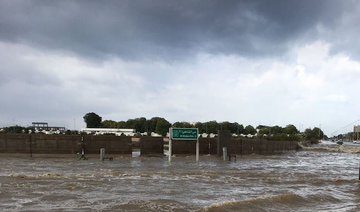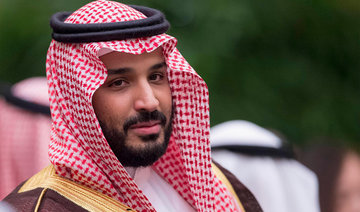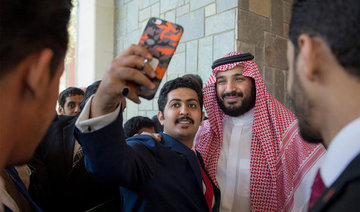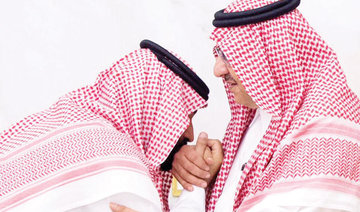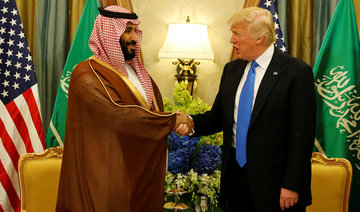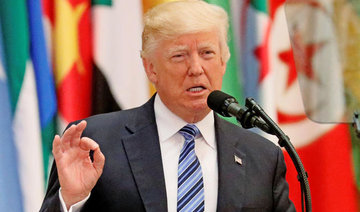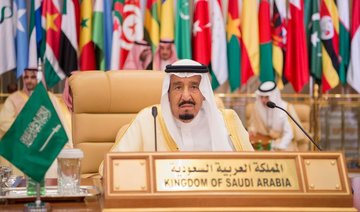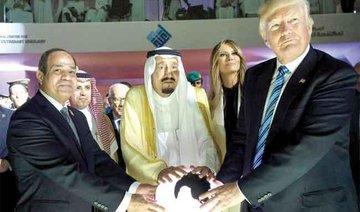Saudi Security authorities have clearly scored a substantial victory against terrorism. Their swoop that rolled up four terror cells and a large support network sends a clear message to Daesh. The terror group has made the mistake of taking on a determined and implacable enemy.
Terrorists generally hold the initiative when they begin their campaigns of murder. Thus last November the shooting dead of eight worshippers in the village of Al-Ahsa was Daesh’s calling card. It served to announce the opening of its vile campaign.
Then this May, 29 people died in the attacks, a week apart, on the Al-Qadeeh mosque in Qatif and the Anoud mosque in Damman. It was clear that the security services were expecting a terrorist outrage. The challenge was that they were not sure where it would happen. Two months on and it is clear that they have made a significant intelligence breakthrough.
In a major dragnet, 431 terror suspects have been apprehended. The hunt is still on for others. It seems that the security services know who they are looking for.
Among those held are people suspected of being involved in the attacks on the mosques in Eastern Province. Also detained are individuals thought to have been responsible for recent assaults on police patrols in Riyadh.
The most outstanding coup was however the actual prevention of terror attacks apparently being planned by these men. An unnamed diplomatic mission had been reconnoitered. There were also planned assaults on security and government premises in Sharourah.
In an attempt to strike at the heart of the country’s security, it is also known that the terrorists were trying to pinpoint the homes of members of the police and security services. It is clear that a campaign of assassinations was being planned.
The level of organization unmasked in this week’s raids is chilling. Terror cells, each of five people, had separate tasks. One for instance had the job of persuading fools to be suicide bombers. Another had the job of actually putting together the explosive belts. Interior Ministry spokesman Gen. Mansour Al-Turki made clear that there was no direct contact between each terror cell. This classic terrorist tactic is designed to protect the individual cells when one of them is penetrated or broken up.
Fortunately for the Kingdom, Daesh's carefully laid scheme did not work. Somehow, and the guess has to be largely thanks to sophisticated signals interception, Saudi intelligence was able to intercept the orders coming presumably from the center of the terror network in the Syrian town of Raqqa.
The secret cells and their support groups contained a mix of nationalities including Saudis. Imprisoned and currently being investigated are individuals from Algeria, Chad, Egypt, Jordan, Nigeria, Syria and Yemen. These people had been welcomed as guests in the Kingdom. They repaid their hospitality with treachery and murder.
The crushing of the Daesh terror network will not however be the end of the matter. Saudi Arabia has won an important battle. But the war against Daesh is very far from over. It has suffered a humiliating defeat. It will want to strike back. Undoubtedly, the security forces are already prepared for this. Their vigilance must be supported by all who live in the Kingdom. One day, it may emerge that this week’s operation was helped by information from an observant member of the public.
Meanwhile there has been another victory to celebrate this week. On Tuesday, two aid vessels tied up in Aden port. One of them, from the UN, had been standing offshore for some time. It was too dangerous to risk entering the harbor. But now Aden is liberated. Yemeni government forces, backed by the Saudi-led air campaign have driven Houthi rebels out of the port city. It is safe for both aid ships to dock and discharge their urgently needed cargo.
Once more, a famous victory has been won. But the war is far from over. Until the Houtis come to understand how they have been misled by their Iranian sponsors, the violence will continue. More lives will be lost. More people will suffer from hunger and wounds. More homes will be destroyed.
But there is a lesson to be learned here. This lesson needs to be learned in Raqqa and in Tehran. The Kingdom has a reputation for quiet diplomacy. It sees it as always preferable to talk softly. Nevertheless, those who mistook this thoughtful approach for weakness have been proven utterly wrong. If there is no alternative, the gloves come off. And the fist with which the Kingdom strikes is made of iron.
Kingdom’s victory on two fronts
Kingdom’s victory on two fronts
Editorial: Iran must not go unpunished

- Arab News argues that while war is always a last resort, an international response is a must to curb Iranian meddling
- US strikes worked well when Assad used chemical weapons against his people
The attacks on Tuesday by armed drones on Saudi oil-pumping stations, and two days beforehand on oil tankers off the coast of Fujairah in the UAE, represent a serious escalation on the part of Iran and its proxies, should the initial conclusions of an international investigation prove to be accurate.
Riyadh has constantly warned world leaders of the dangers that Iran poses, not only to Saudi Arabia and the region, but also to the entire world. This is something former President Obama did not realize until the Iran-backed Houthis attacked the US Navy three times in late 2016. The recent attacks on oil tankers and oil pipelines were aimed at subverting the world economy by hitting directly at the lifeline of today’s world of commerce. Tehran should not get away with any more intimidation, or be allowed to threaten global stability.
It was in 2008 that the late King Abdullah bin Abdulaziz called upon the US to “cut off the head of the snake,” in reference to the malign activities of Iran. Nearly a decade later, Crown Prince Mohammed bin Salman referred to Iran’s supreme leader Ayatollah Ali Khamenei as the “new Hitler of the Middle East.” We are in 2019 and Iran continues to wreak havoc in the region, both directly and through its well armed proxies. Crown Prince Mohammed was therefore clearly correct when he argued that appeasement does not work with the Iranian regime, just as it did not work with Hitler. The next logical step — in this newspaper’s view — should be surgical strikes. The US has set a precedent, and it had a telling effect: The Trump strikes on Syria when the Assad regime used Sarin gas against its people.
We argue this because it is clear that sanctions are not sending the right message. If the Iranian regime were not too used to getting away with their crimes, they would have taken up the offer from President Trump to get on the phone and call him in order to reach a deal that would be in the best interests of the Iranian people themselves. As the two recent attacks indicate, the Iranians insist on disrupting the flow of energy around the world, putting the lives of babies in incubators at risk, threatening hospitals and airports, attacking civilian ships and putting innocent lives in danger. As the case always is with the Iranian leadership, they bury their heads in the sand and pretend that they have done nothing. Nevertheless, investigations indicate that they were behind the attack on our brothers in the UAE while their Houthi militias targeted the Saudi pipelines.
Our point of view is that they must be hit hard. They need to be shown that the circumstances are now different. We call for a decisive, punitive reaction to what happened so that Iran knows that every single move they make will have consequences. The time has come for Iran not only to curb its nuclear weapon ambitions — again in the world’s interest — but also for the world to ensure that they do not have the means to support their terror networks across the region.
We respect the wise and calm approach of politicians and diplomats calling for investigations to be completed and all other options to be exhausted before heading to war. In the considered view of this newspaper, there has to be deterrent and punitive action in order for Iran to know that no sinister act will go unpunished; that action, in our opinion, should be a calculated surgical strike.
EDITORIAL: Jeddah floods a reminder of why we need the anti-corruption drive

For the residents of Jeddah, rain has, more often than not, brought trouble and devastation. Whenever the skies open up, thoughts go back to that “Black Wednesday” of November 25, 2009, when more than 100 people lost their lives and property worth billions of riyals was destroyed. An investigation was opened into the disaster and some of the guilty were taken to court and tried; some of the small fry were even jailed. As has been the case in the past, the mighty arm of the law could barely touch those at the top who enjoyed immunity from prosecution.
And so it was business as usual until the rain began to wreak havoc again, reminding us that the laws of nature take their course and that hiding your head in the sand does not chase the clouds away.
Having said that, it must be admitted that, yes, lessons were learned. A disaster management team was set up. The weather forecast department became active in issuing alerts. In fact, Tuesday could have been far worse had it not been for the timely alert from the Presidency of Meteorology and Environment (PME) and a prompt decision by the Ministry of Education to suspend classes, schools and universities in and around Jeddah. That helped in keeping people and vehicles off the streets. At noon on Tuesday, it looked as if the city were under some kind of curfew.
The questions that are on everyone's minds right now are: Why is it that rain renders the city helpless and immobile at this time every year? Why have efforts to create effective rainwater drainage systems not borne fruit despite pumping billions of riyals into new projects such as dams and canals? Why is it that the authorities are found wanting whenever heavy rain occurs? More importantly, what is the solution?
Here is the answer. These floods are a stark reminder of why the current drive against corruption is so essential. It is required in order to instill the fear of law into high-ranking officials and heads of construction companies and civic bodies who have failed in their responsibilities. Those who have cut corners and have pocketed public money, those who have not delivered on the projects and who have provided substandard services must pay for their sins of omission.
This is exactly what is happening. No one is above the law. The guilty, whoever they are, however high up they are, will have to pay — and they are. In this new era of transparency and accountability — initiated by Crown Prince Mohammed bin Salman — word has gone down from top to bottom that no one is immune. If you are guilty you will be punished. Those responsible for the havoc of the floods on Tuesday will have no rest either.
Editorial: A vote of confidence in the new Saudi generation
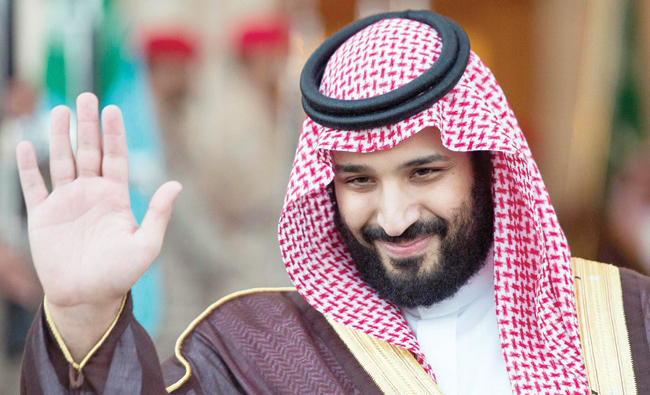
The landmark appointment of Prince Mohammed bin Salman as crown prince represents a vote of confidence in the Kingdom’s younger generation, which makes up a large majority of the population. The new crown prince was supported by a landslide vote of 31 out of 34 members of the Royal Family’s Allegiance Council.
The decision came in the wake of King Salman making a number of changes over the past two years. He has appointed many young and highly qualified government officials as ministers, ambassadors, provincial governors and deputy governors.
The new direction has also caught on in the private sector, where we have seen a trend in young and qualified executives being hired. It is noteworthy that many of these executives are women, who have the same responsibilities as their male counterparts.
There are, as always, some international observers who will seek to deliberately misinterpret what has taken place at the top of the Kingdom’s power structure. The fact is, however, that former Crown Prince Mohammed bin Naif endorsed the decision in a letter to the king. He was also seen on video by viewers worldwide congratulating the new crown prince in person.
That Prince Mohammed bin Salman has made his impression on the world is evident from the number of congratulatory messages that have been sent in, including one by US President Donald Trump, who congratulated him and said he was looking forward to consolidating the Saudi-American partnership.
British Prime Minister Theresa May, in her congratulatory message, said she is looking forward to working with Prince Mohammed “to deepen our close bilateral ties in the years ahead, building on the constructive meetings we had in Saudi Arabia earlier this year.”
The Gulf states of Bahrain, the UAE, Kuwait, Oman and interestingly, even Qatar, have likewise endorsed the decision.
We can expect more rapid and drastic reforms if we take all of Prince Mohammed bin Salman’s accomplishments when he was deputy crown prince as an indicator of what is yet to come.
Editorial: Two thumbs up, Mr. Trump
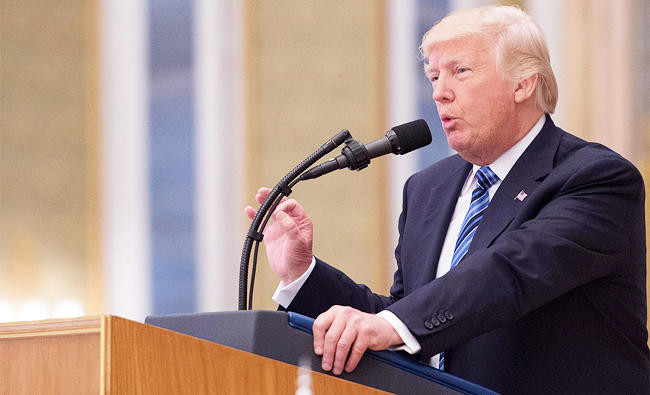
There was one topic that dominated the lobby of the Riyadh Marriott, where the media center for the Arab-Islamic-American Summit was set up: US President Donald Trump’s speech. Journalists from the Middle East, and those flying in from the US, seemed to all have the same question in the back of their mind: How bad would Trump’s speech be, considering his controversial pre-election rhetoric?
Not only did last night’s speech silence most critics — in this region at least — but it made it very clear that Trump will do what he thinks is right, no matter how harshly he is made to look like he is contradicting himself back home.
What matters to this part of the world is that we feared a president who would seek to divide us, but got one who last night talked about unity and how standing together will ensure we do not fail. We feared a president we were led to believe hates our values and culture, but we got one who sipped our coffee, joined us in sword dancing and told us last night that the US is not here to impose its way of life, but to offer us a helping hand if we choose to take it.
We thought that when Trump said “America First,” he meant we would be neglected and left to our misery. But it is his predecessor Barack Obama who did that when he opted to lecture and profess instead of adhering to his own red line when Syrian President Bashar Assad used chemical weapons against his own people.
What did Trump do? He fired back in less than 48 hours, and attacked a Syrian regime convoy a few days ago to make sure nobody thinks his administration is messing around. Trump is now off to Israel, and while he deserves two thumbs up for his Riyadh speech, all eyes will be on his negotiation skills to see if he can deliver what Obama and his other predecessors failed to achieve: A peace deal between the Israelis and Palestinians.
Editorial: For the sake of humanity, Russia!
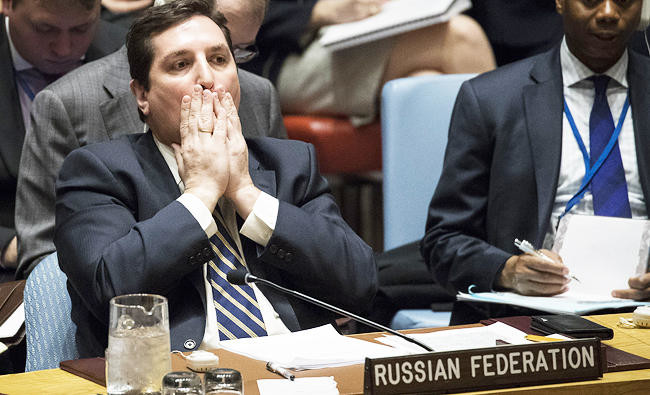
The horrible images coming out of Khan Sheikhun in Syria’s northern province of Idlib are both shocking and mind-numbing. The pictures of lifeless little ones in the arms of their parents and relatives are heart-breaking.
No words can describe this and other horrors that have been visited upon the innocent people of Syria by an inhuman and murderous regime.
This is not the first time the Bashar Assad regime has used chemical weapons against its own people. Nor most likely is it the last. The first time these weapons of mass destruction were used was in August 2013 in Ghouta.
The Assad regime was not held accountable for that, despite tough talk from the then-US President Barack Obama.
In contrast this time, the world seems united in its condemnation of the regime’s barbarous and abominable act. Nonetheless, there is one country that continues to stand by a dictator whose appetite for blood-letting and killing does not seem to have been slaked even now.
Russia maintains the attack came from opposition fighters. There is, however, clear evidence to the contrary. The attack was, according to the evidence, the result of an aerial bombing and only the regime has aircraft. The opposition has none.
It defies logic and good sense as to why Russia would stand on the wrong side of history. How many more Syrians need to die for the calculations in Moscow to change? More than 400,000 have died in the war and more than 5 million have been uprooted from their land and scattered to countries far and near.
The chemical attack is — as US President Donald Trump rightly said — an affront to humanity.
There has been far too much dilly-dallying at the UN. For much too long, the fate of Syrians has been held hostage to the deadly game of Russian roulette. The business of the veto must stop. And with it, the dance of death in Syria can also be stopped.
Russia must, for the sake of humanity, join the world in stopping the devil in Damascus from raining more death and destruction upon innocent people.







